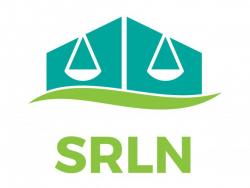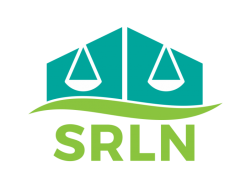Document Author
Year Published
Topic
- (-) Remove Regulatory Concerns filter Regulatory Concerns
- 100% Access to Justice (2) Apply 100% Access to Justice filter
- Impact of Self-Represented Litigant Innovations on Cost and Efficiency (2) Apply Impact of Self-Represented Litigant Innovations on Cost and Efficiency filter
- Justice Tech Entrepreneurs (2) Apply Justice Tech Entrepreneurs filter
- Reports, Evaluations, Best Practices, Surveys (2) Apply Reports, Evaluations, Best Practices, Surveys filter
- Research (2) Apply Research filter
- Strategic Planning (2) Apply Strategic Planning filter
- Administrative Agencies (1) Apply Administrative Agencies filter
- Best Practices (1) Apply Best Practices filter
- Best Practices for Self-Help Centers (1) Apply Best Practices for Self-Help Centers filter
- Courts (1) Apply Courts filter
- Ethics Education (1) Apply Ethics Education filter
- Judges (1) Apply Judges filter
- Judicial Ethics (1) Apply Judicial Ethics filter
- Legal Aid (1) Apply Legal Aid filter
- Libraries (1) Apply Libraries filter
- Remote (1) Apply Remote filter
- Reports (1) Apply Reports filter
- Scaling in Court Systems (1) Apply Scaling in Court Systems filter
- Self-Help Centers (1) Apply Self-Help Centers filter
- Technology (1) Apply Technology filter
- Trial Court Self-Help (1) Apply Trial Court Self-Help filter
- Unbundling (1) Apply Unbundling filter
- Working Groups (1) Apply Working Groups filter
State
Tags
Post date
Results 1 - 2 of 2 for Self-Represented Litigation Network, Regulatory Concerns
Search results

SRLN Brief: Procedural Fairness / Procedural Justice (SRLN 2015)
Research has shown that when defendants and litigants perceive the court process to be fair, they are more likely to comply with court orders and follow the law in the future—regardless of whether they “win” or “lose” their case. This is called procedural ...

Resource: Resource Guide on Serving Self-Represented Litigants Remotely (SRLN 2016)
The Resource Guide provides options for courts and other entities interested in providing services to self-represented litigants using means that are not face-to-face, instead of, or in addition to, in-person alternatives such as walk-in services, worksho ...